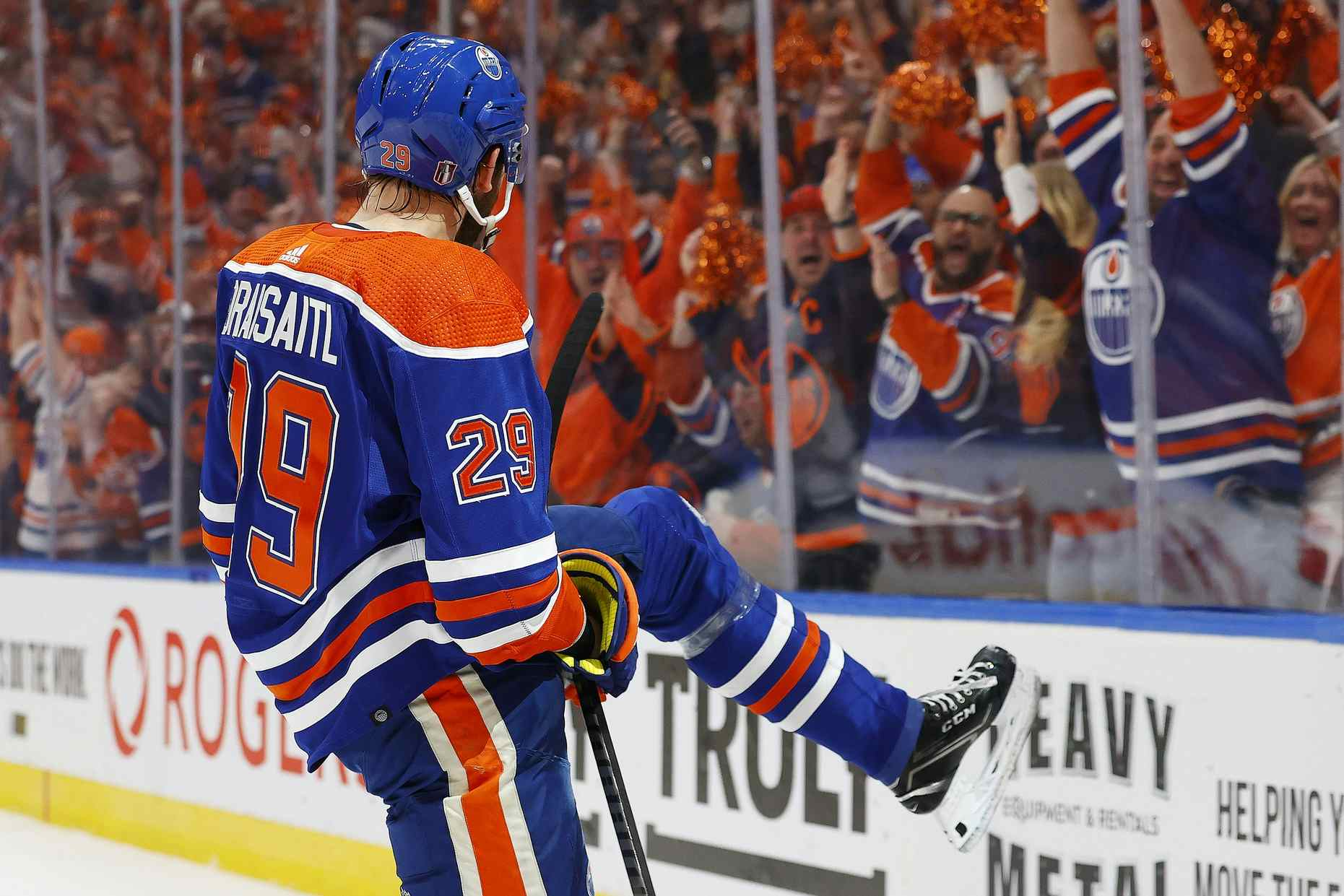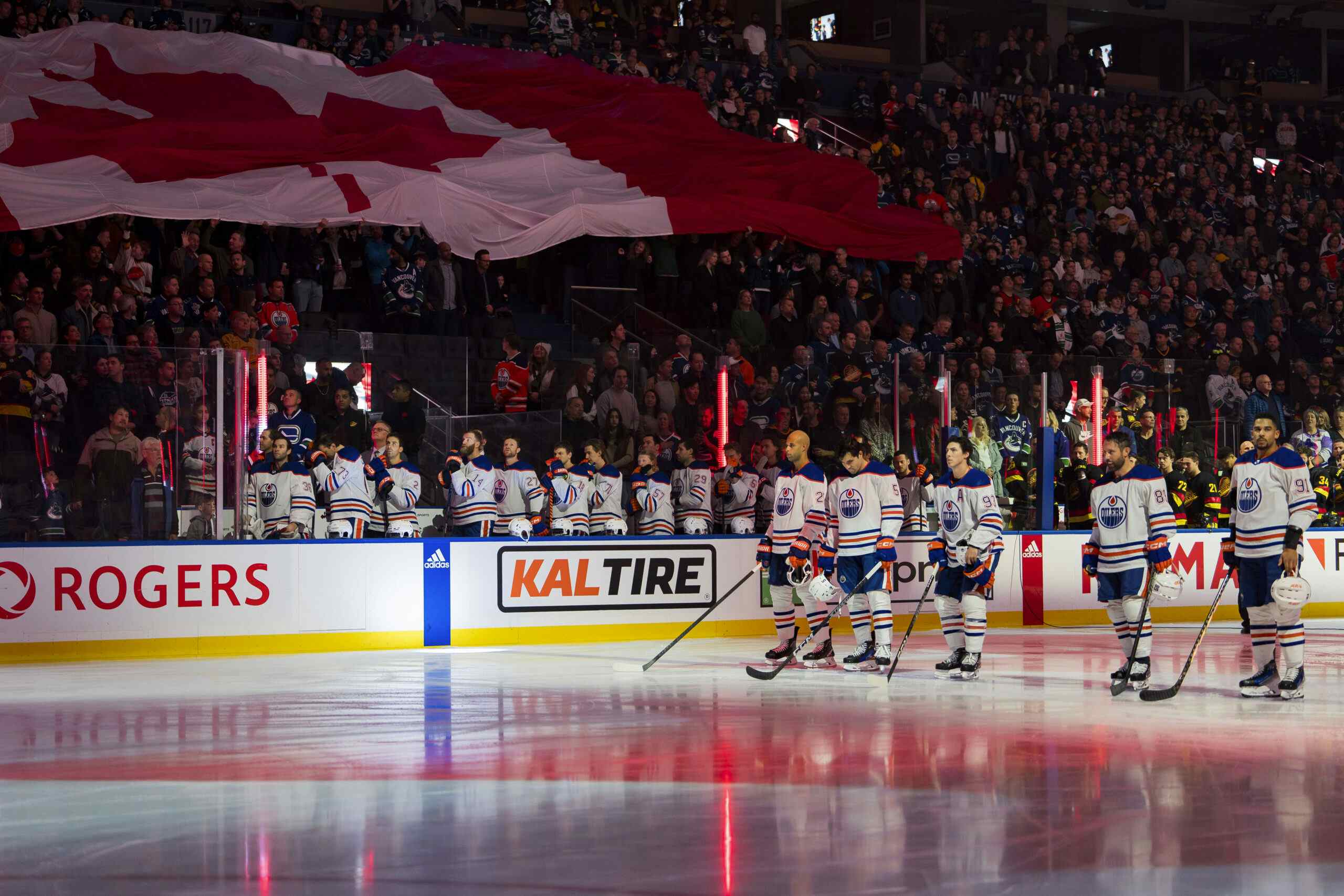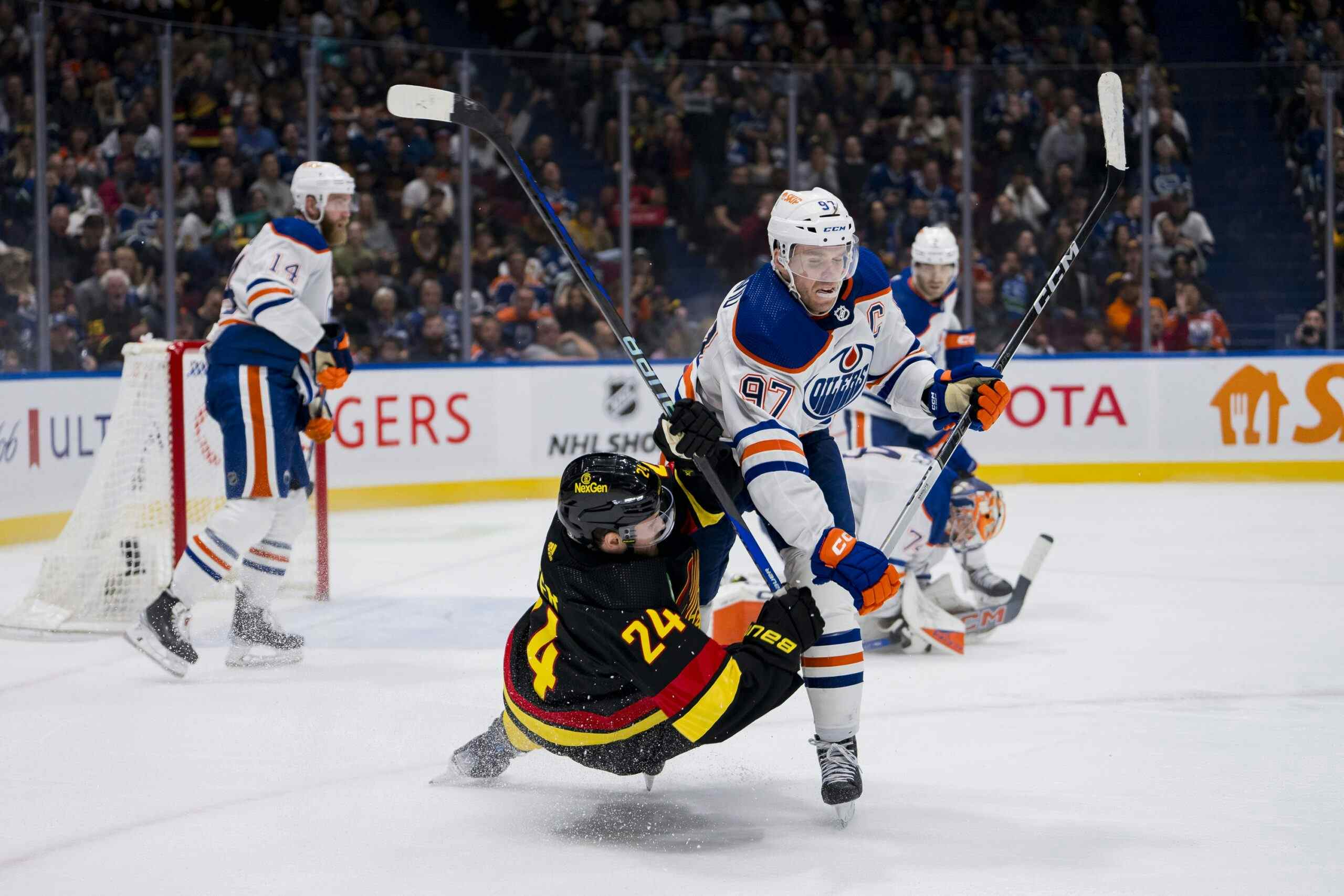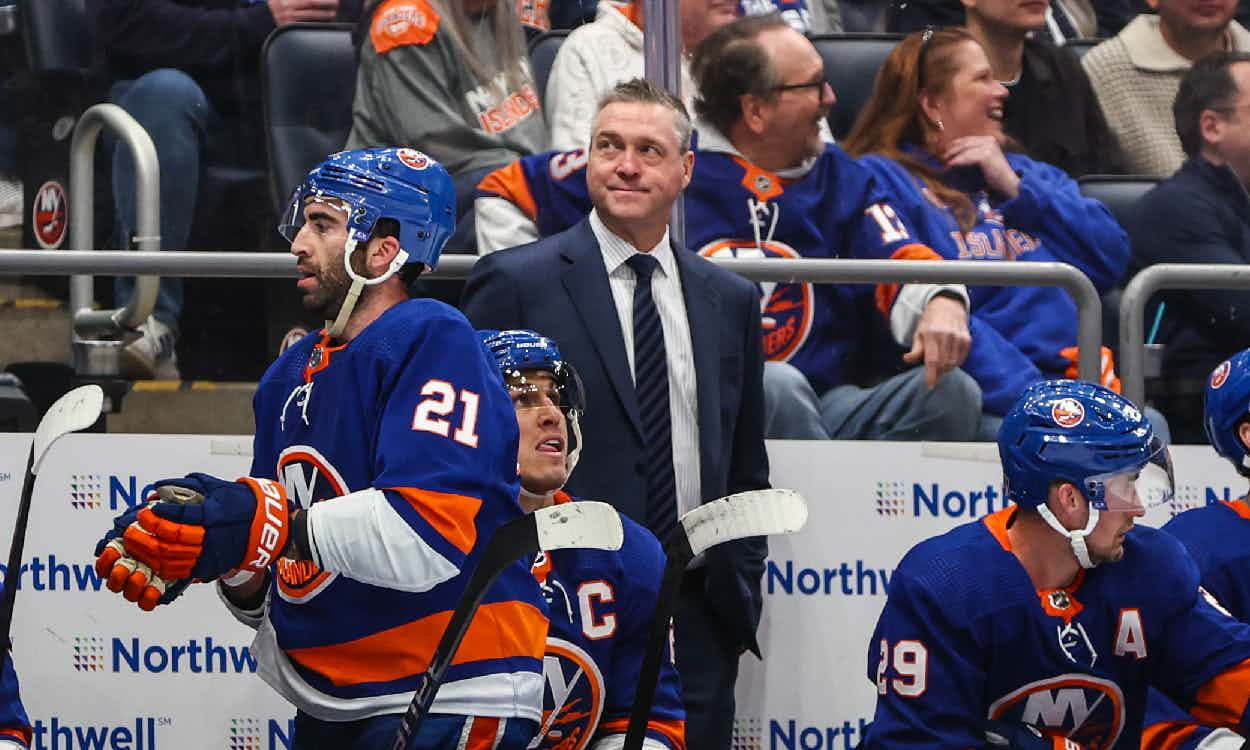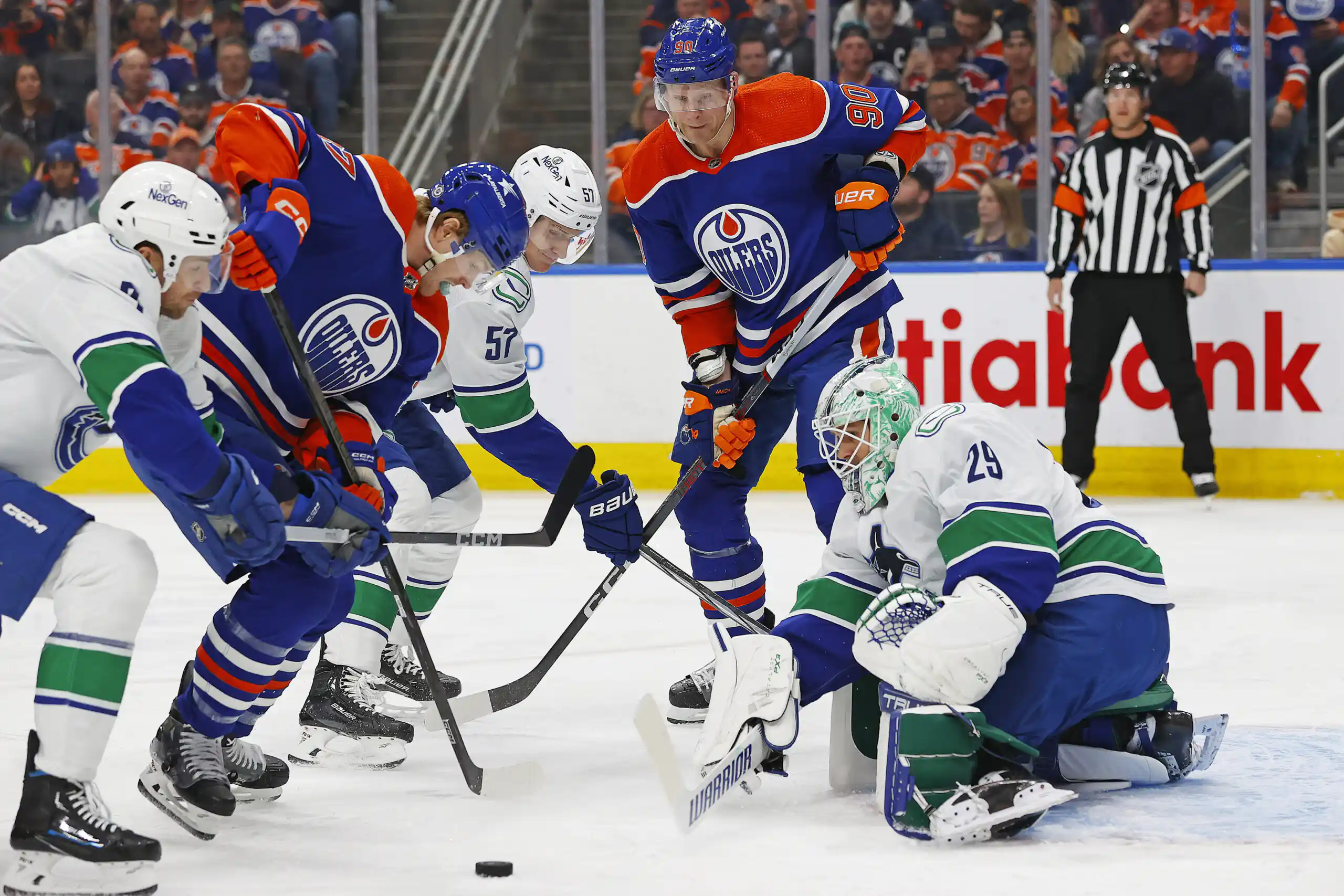Why the Oilers Can Make the Playoffs

By Jason Gregor
4 years agoIt is the most asked question in Edmonton leading up to Wednesday’s season opener against the Vancouver Canucks: Will the Edmonton Oilers make the playoffs?
Because they have missed the postseason in 12 of the past 13 years I understand why many people’s initial reaction is to say, “Nope.”
But remember what the great Lloyd Christmas once said: “So you’re telling me there’s a chance.” So today we will outline why the Oilers will make the playoffs.
The greatest aspect of sports is how often it produces unexpected results. Despite research and statistical analysis, there are always a few teams, or players, in every professional league who perform better than pundits, fans or number crunchers expect.
Self belief, momentum, lucky or unlucky bounces, injuries and a bevvy of other things play a part in why some teams underperform and why others exceed expectations.
Here are some reasons why the Oilers will be better than most expect them to be.
1. The goaltending will be better. @Mikko Koskinen and @Mike Smith are not considered among elite goalies today. That is fair, but they don’t have to be elite for the Oilers to make the postseason, they just need to be solid and around league average.
Koskinen needs to be the goalie he was through the first four months of last season. From October 4th to January 31st Koskinen was decent.
In 25 starts he had a .910sv%, a 2.79 GAA and a record of 14-11-1.
In 25 starts @Cam Talbot had a .894sv%, a 3.27 GAA and a record of 9-13-2.
Koskinen’s .910sv% was tied for 16th with Connor Hellebuyck. Darcy Kuemper was 12th with a .914sv%. If Koskinen had made three more saves he’d have been 12th. He was a competent goalie when he was playing every second game and getting some rest.
However, he started 26 of the Oilers final 32 games and struggled. He was fatigued, his positioning suffered and he got exposed. Dave Tippett has spoken many times about fatigue, and ensuring neither of his goalies plays too much this season.
Mike Smith was the opposite of Koskinen. He had a rough start, and part of that was dealing with the death of a very close friend. Not an excuse, just reality. However, he finished the season quite well.
From October to the end of January Smith had an ugly .888sv% in 24 starts.
From February 1st to the end of the regular season he posted a solid .912sv% in 16 starts. Then in five playoff games, he had a .917sv%.
Koskinen won’t be asked to start even close to 26 of 32 games, while Smith is in a much better place emotionally to start this season. Neither has to be great. Koskinen is capable of being around a .910sv% goalie, when he doesn’t have to be the go-to starter, and Smith’s career SV% is .912. The Oilers goalies will not be spectacular, but they will be consistent and with neither being asked to be the obvious starter they will give the team competent enough goaltending. Koskinen will be around .912Sv%, which is actually quite good in today’s game.
2. The penalty kill will improve. It has been on a downward slide for the past three seasons, but Ken Holland went out and signed players who like to penalty kill and are solid at it. Dave Tippett will not have @Connor McDavid or @Leon Draisaitl on the PK very much, and @Ryan Nugent-Hopkins will see his PK time reduced as well. They will be fresher at 5×5 and on the PP, so that is a bonus.
But players like @Riley Sheahan, @Josh Archibald, @Markus Granlund, @Colby Cave (played briefly on PK in Edmonton last year) along with Jujhar Khaira will be the main penalty killers.
I don’t expect the PK to be at the top of the league, but Edmonton was 30th last year with an awful 74.8% success rate and allowed 62 goals. If they are middle of the pack (16th), they would cut down around 17 goals against. Pittsburgh was 16th in PP goals allowed last year at 45 and Boston was 16th in PK% at 80.
Eliminating powerplay chances will help, as the Oilers were shorthanded 246 times last season, 10th most in the NHL, but mainly new personnel will make a big difference. It will also help having Kris Russell play the left side. He won’t be trying to clear pucks out on his backhand, like he did last year while playing the right side frequently. It is a small tweak, but clearing pucks out when given the chance will automatically improve the PK. The Oilers PK will finish the season around 82.2%.
3. Last year the Oilers top-five goals scorers produced 156 goals, fourth most in the NHL. I don’t see them regressing very much. McDavid and Draisaitl could swap goal totals and no one would be shocked. Even if they drop ten goals, they’d still be eighth most, so their production was elite. It will continue.
4. Their depth scoring will be much better. Much. Why?
Because last season they were the worst in the NHL since the league expanded to 80 games played in 1975. That’s right, the worst in 44 years. The rest of the Oilers forwards scored a paltry 43 goals last season. In 2018 they scored 80 and in 2017 they popped 79. Last year was a major outlier. They couldn’t match it if they tried.
Only one other team, Dallas, had fewer than 67 goals from their depth forwards. Just being cautious, the Oilers will get 25 more goals from their depth forwards this season. They’ve only had fewer than 68 goals from their depth forwards one other time in the past decade, so 68 is a very reasonable, and in fact a low mark, projection.
5. They will cut down on their goals against. They allowed the seventh and fifth most goals against the past two seasons. Their defensive zone coverage, inability to kill penalties, giving up the puck too much in the neutral zone and overall lack of commitment to solid defence killed them. Dave Tippett won’t stand for similar results.
From day one he has preached reducing goals against. And it won’t just come from better defensive zone play, but also from having the puck in the offensive zone more. He doesn’t want the Oilers dumping the puck in the minute they are pressured in the neutral zone. Too often last year they would essentially just give the puck away by dumping it in when no one was able to chase it. More time with the puck will eliminate goals against.
Also, the team will attack in a five-man group. Tippett wants his defenceman causing havoc on the rush and into the offensive zone. For the opposition to react to them, rather than be passive and hope the forwards produce most of the points. And he wants it with all of his lines.
6. A different attitude on the team. Tippett is giving all players some responsibility and challenging them to own it. If you feel you have a big role, whether that is killing penalties and playing sound defensively five-on-five, or you are a complementary top-six winger expected to chip in offensively. Whatever the role is, accept it and do it to the best of your ability. If they don’t, Tippett will give someone else an opportunity to flourish in that role.
The Oilers still need another high-end forward, but they have more depth throughout the lineup, and many of those players have NHL experience. The potential to lose ice time should create a more consistent work ethic throughout the lineup. The Oilers got outworked on too many nights last season. Tippett’s teams have historically been hard working. That will continue this season and they will be in more games because of it.
7. Tippett has made the playoffs in the first season of every NHL team he has coached. His first NHL coaching job was with the Dallas Stars in 2002/2003. They missed the playoffs the previous season, but had a 21-point improvement and finished with 111 points and won one playoff round.
He was fired after the 2009 season, and later that summer was hired by the Arizona Coyotes. They had 79 points (same total Oilers had last season) in 2009, but Tippett took over and they improved by 28 points and finished with 107 points. Tippett’s players respond well to him. He made the playoffs his first five seasons in Dallas and his first three in Arizona.
8. The Oilers missed the playoffs with two 100-point scorers, becoming only the third team in NHL history to do it. The 1988 Quebec Nordiques had Peter Stastny (111 points) and Michel Goulet (106), but still finished fifth in the Adams Division with 69 points. The 1990 Pittsburgh Penguins had Mario Lemieux (123) and Paul Coffey (103), and they finished fifth in the Patrick Division with 72 points. The Penguins won the Stanley Cup the following two seasons, while the Nordiques got progressively worse. In 1989 they missed again and Stastny dropped to 85 points while Goulet dropped to 64.
I don’t see the Oilers winning the Cup this year, and I don’t see McDavid and Draisaitl’s point totals dropping by 26 and 42 points. McDavid and Draisaitl are entering their prime scoring years. The safe bet is both produce 90+ points, but 100 is realistic, and unless they are injured, it is a guarantee, considering their ability. Having two elite forwards is a major advantage, and the depth scoring will be significantly better which leads to a playoff berth.
9. Ken Holland has brought stability and calmness to the organization that hasn’t been around in a long time. Having been around the team for the past 17 years, and watching and interacting with those on winning teams, I’m a firm believer that culture does matter. In the early 2000s, the Oilers didn’t have the talent of other teams, but they worked hard and you had a realistic sense of what to expect each night.
From 2007 until now, that has mostly been non-existent for a variety of reasons. Holland has calmed things down within the organization. He is a straight shooter. He outlines his plan — at least enough of it so media and fans have a sense of what he hopes to accomplish — and doesn’t make grandiose claims while doing so.
He openly admits he’d still like another top-six forward, top-four defenceman and even a third line centre. He is still on the lookout for those pieces, but realized it was unlikely to get all of them. So he opted to bring in NHL veterans to fill out his bottom six and let the future develop in Bakersfield.
Players can sense a good leader and the attitude around the team is drastically different than the past few seasons. This alone won’t help them win games, but I believe it is a small factor. Holland is only a few months into the job, and I expect there will be more changes on and off the ice before the Oilers are a legitimate Cup contender, but when I compare his first few months on the job to Peter Chiarelli’s, I see a very different approach — mainly how Holland interacts with his own staff, coaches and players.
10. The powerplay will be over 25%. They have two of the most skilled players in the world, and with every year they get more comfortable with each other. If you look at the dominant powerplays usually they get better as continuity builds. The Oilers five-man PP unit returns and James Neal will either replace Chiasson or split time. Either way I think that spot, Neal/Chiasson, will combine for 15+ powerplay goals.
Will all of the above occur? It would be easy to outline why they won’t make the playoffs, but that has been discussed for years, so I looked at why they will.
Those are the reason I think the Oilers could make the playoffs. What are yours?
Recently by Jason Gregor:
Recent articles from Jason Gregor

